Lecture 11: Company Culture and Building a Team, Part II
第十一讲:企业文化与团队建设(下)
第11讲课程视频
![图片[1]_Lecture 11: Company Culture and Building a Team, Part II 第十一讲:企业文化与团队建设(下)_繁木网](http://fanmu.com/wp-content/uploads/2021/12/Y-Combinator.jpg)
讨论地址:http://www.huomen.com/topic-show-id-103.html
Sam Altman: Part two of Culture and Team. We have Ben Silbermann, the founder of Pinterest, and John and Patrick Collison, the founders of Stripe. Founders that have obviously, some of the best thinking about culture and building their teams.
山姆·奥特曼:文化与团队的第二部分。我们有Pinterest的创始人Ben Silbermann和Stripe的创始人John和Patrick Collison。很明显,创始人们对文化和团队建设有着最好的思考。
There’s three areas we are going to cover today. One will be general thoughts on culture as a follow up on the last lecture. And then we are really going to dig in to the findings of these companies and building out the early team. Then how that changes and evolves as these guys have scaled their companies to the hundred plus, I don’t even know how many employees you have now but quite a lot, these very large organizations and how they adapt these principles of culture. But to start off, I just want to ask a very open ended question which is, what are the core pieces of culture that you found to be the most important in building out your companies?
今天我们要讨论三个方面。其中一个是关于文化的一般性思考,作为上节课的后续内容。然后我们真的要深入挖掘这些公司的发现,建立起早期的团队。当这些人把他们的公司扩展到100多家的时候,我甚至不知道你现在有多少员工,但是很多,这些非常大的组织,以及他们如何适应这些文化原则。但首先,我只想问一个非常开放的问题,那就是,你发现在打造公司的过程中,最重要的核心文化是什么?
Ben Silbermann: Sure. What are the most important parts? For us, we think on a few dimensions. One is who we hire, what those people value. Two is what we do every day. Why do we do it? Three is what we choose to communicate and I think four is how we choose to celebrate. Then the converse of this is what you choose to punish, but in general I think running a company based on what we celebrate is more exciting than what we punish. I think, the four things I think make up the bulk of it for us.
本·西尔伯曼:当然。最重要的部分是什么?对我们来说,我们考虑的是几个方面。一是我们雇佣谁,他们看重什么。我们每天都做两件事。我们为什么要这么做?三是我们选择沟通的方式,我认为四是我们选择庆祝的方式。反之,你选择惩罚什么,但总的来说,我认为基于我们庆祝的东西来经营一家公司比我们惩罚的东西更令人兴奋。我想,这四件事对我们来说是最重要的。
John Collison: One thing, I think Stripe has placed a large emphasis on, more so than other companies, is transparency internally. I think it’s something that’s been really valuable for Stripe, and a little bit misunderstood. All the things people talk about, like hiring really great people or giving them a huge amount of leverage.
约翰·科利森:我认为,与其他公司相比,Stripe更强调的一点是内部透明度。我认为这对Stripe来说是很有价值的,但有点被误解了。人们谈论的所有事情,比如雇佣真正优秀的人或者给他们巨大的筹码。
Transparency for us plays into that. We think that if you are aligned on a high-level about what Stripe is doing, if everyone really believes in the mission, that if everyone has really good access to information, and everyone has a good picture of the current state of Stripe, then that gets you a huge amount on the way there in terms of working productively together. And it forgives a lot of the other things that tend to break as you grow a startup. So as we have grown, we started off two people, we’re now a hundred seventy people, we’ve put a lot of thought into the tooling that goes around, transparency. Because with a hundred and seventy people, there’s so much information being produced that you can’t just consume it all as a fire hose. And so, how we use email, things like that, we can go into it more later. But that’s one of the core things that helped us work well.
对我们来说,透明度就是其中之一。我们认为,如果你对Stripe所做的事情保持高度一致,如果每个人都真正相信这个使命,如果每个人都能很好地获取信息,每个人都能很好地了解Stripe的当前状态,那么这将使你在一起高效工作的道路上获得巨大的收获。它也原谅了很多其他的事情,当你成长为一家初创公司时,这些事情往往会破裂。因此,随着我们的成长,我们从两个人开始,我们现在是一百七十人,我们已经把大量的思想放在了工具上,透明化。因为有一百七十个人,有这么多的信息在产生,你不能把它们都当作消防水龙带来消耗。所以,我们如何使用电子邮件,诸如此类的东西,我们可以稍后再讨论。但这是帮助我们顺利工作的核心因素之一。
Patrick Collison: I think culture, to some degree is a resolution to a bandwidth problem. In the sense that, when you start out working on something you are coding all the time, but you can’t code all the things that you think the product may need. And so the organization gets larger. Maybe in some idealized world, I don’t actually think this is true, but ideally you should be involved in every single decision, in every single type of moment of the company, everything that happens, but obviously you can’t. Or maybe you can if you’re two people, but you certainly can’t if you’re five or ten. At that time, it comes very quickly, by a hundred and fifty, it’s completely hopeless.
帕特里克·科利森:我认为文化,在某种程度上是带宽问题的解决方案。从这个意义上说,当你开始工作的时候,你一直在编码,但你不能编码所有你认为产品可能需要的东西。所以组织变得更大了。也许在某个理想化的世界里,我并不认为这是真的,但理想情况下,你应该参与公司的每一个决定,每一种时刻,每一件事情,但显然你不能。或者如果你是两个人,你可以,但如果你是五岁或十岁,你肯定不能。在那个时候,它来得很快,一百五十,这是完全没有希望的。
And so culture is the invariant that you want to maintain, as you get specifically involved in fewer and fewer decisions over time. When you think about it that way, maybe intended importance becomes self-evident. Again, the fraction of things you can be involved in directly, diminishing, exponentially, assuming your headcount growth is on a curve that looks like one of the great companies. And yeah, that’s super important. It manifests itself in a bunch of different ways. For example, in hiring, maybe the reason the first ten people you hire, the decisions are so important that aren’t just hiring those first ten people, you are actually hiring a hundred people because you think each one of those people are going to bring along another ten people with them. And thinking exactly what ninety people that you would like those first ten people to bring on. It’s going to be quite consequential for your company but really briefly I think it’s about abstraction.
因此,文化是你想要保持的不变,因为随着时间的推移,你具体参与的决策越来越少。当你这样想的时候,也许你想要的重要性就不言而喻了。同样,假设你的员工人数增长曲线看起来像是一家伟大的公司,那么你可以直接参与的事情的比例会呈指数级递减。是的,这非常重要。它以一系列不同的方式表现出来。例如,在招聘过程中,也许你雇佣前十个人的原因,决定是如此重要,以至于不仅仅是雇佣前十个人,实际上你雇佣了一百个人,因为你认为这些人中的每一个人都会带来另外十个人。想想你希望前十个人带上多少人。这对贵公司来说意义重大,但简单地说,我认为这是关于抽象的。
Sam Altman: One thing a lot of speeches in this class have touched on is hiring those first ten employees. If you don’t get that right, the company basically never recovers. But no one has talked about how to do that, so what have you looked for when you have hired these initial employees to get the culture of the company right? How have you found them?
萨姆·奥特曼:这门课上很多演讲都涉及到的一件事就是雇佣前十名员工。如果你做得不对,公司基本上永远不会复苏。但没有人谈论过如何做到这一点,那么,当你雇佣了这些最初的员工,以使公司的文化正确的时候,你在寻找什么呢?你怎么找到他们的?
Ben Silbermann: I guess this answer is different for every company. I’ll say for us it was very inductive. Clearly I looked for people that I wanted to work with, and I thought were talented. I have read all these books on culture, because if I don’t know something, the first thing I do is go read about it. Everyone has all these frameworks, so I think one big misconception that someone said once was, people think of culture as architecture when it is a lot more like gardening. You plant some seeds, then you pull out weeds when it’s not working, and they sort of expand. When we first hired people, we hired people that were more like ourselves. I often looked for three to four things that I really valued in people. I looked for people who worked hard, had high integrity, low ego. I looked for people who were creative, super curious, which meant they had all these interests.
本·西尔伯曼:我想每个公司的答案都不一样。对我们来说,这是非常归纳的。很明显,我在寻找我想合作的人,我认为他们很有天赋。我读过所有这些关于文化的书,因为如果我不知道什么,我要做的第一件事就是去读它。每个人都有这些框架,所以我认为有人曾经说过的一个很大的误解是,当文化更像园艺时,人们认为文化就是建筑。你种下一些种子,然后在杂草不起作用的时候拔掉杂草,它们会有点膨胀。当我们第一次雇人的时候,我们雇佣的人更像我们自己。我经常在人们身上寻找我真正看重的三到四样东西。我寻找那些努力工作,正直,自卑的人。我寻找那些有创造力,超级好奇的人,这意味着他们有所有这些兴趣。
Some of our first employees are some of the quirkiest you have ever met. They were engineers but they had all these crazy hobbies. Like one guy made his own board game, with his own elaborate set of rules. Another guy was really into magic tricks, and he not only coded a magic trick on an iPhone but he shot the production video in the preview. And I think that quirkiness is a calling card that we find, the people that are excited about many disciplines and extraordinary at once, tend to build really great products and are really great at collaborating.
我们的一些第一批员工是你见过的最古怪的人。他们是工程师,但他们有这些疯狂的爱好。就像一个人做了自己的棋盘游戏,有自己精心制定的规则。另一个家伙真的很喜欢魔术,他不仅在iPhone上编写了一个魔术,而且在预览中拍摄了制作视频。我认为怪癖是我们发现的一张名片,那些对许多学科感到兴奋,同时又与众不同的人,往往会创造出真正伟大的产品,并且非常善于合作。
And the last thing, we really want someone who wants to build something great. And they aren’t arrogant about it, they want to take a risk and build something bigger than themselves. And that, in the beginning, is very easy to select for. If you were in our position, we were in this horrible office, nobody got paid. There was no external reason to stay except wanting to build something to join. In fact there was every reason not to. And that’s something, looking back, that I really value. Because you always knew people were joining for the purest of reasons and in fact forgoing other job opportunities, market salary, a clean office, good equipment just for the chance to work here. To this day, I think a lot of those traits are seeded and embedded in the folks that we look at now.
最后一件事,我们真的需要一个想要创造伟大事物的人。他们对此并不傲慢,他们想冒险去建造比自己更大的东西。一开始,这是很容易选择的。如果你在我们的位置上,我们在这个可怕的办公室,没有人得到报酬。除了想建立一个可以加入的组织外,没有任何外在的理由留下来。事实上,完全有理由不这样做。回想起来,这是我真正珍视的东西。因为你总是知道人们加入这个组织是出于最纯粹的原因,事实上,他们放弃了其他的工作机会,市场薪水,干净的办公室,好的设备,只是为了有机会在这里工作。时至今日,我认为这些特质中的很多都是我们现在看到的那些人身上的种子和根植。
John Collison: The first ten hires is really hard, because you’re making these first ten hires at a point where no one’s heard of this company before. Nobody wants to work with you. You are these two weird people working on this weird idea-
约翰·科利森:前十次招聘真的很难,因为你在前十次招聘时,没有人听说过这家公司。没人愿意和你一起工作。你就是这两个研究这个奇怪想法的怪人-
Patrick Collison: Their friends are telling them not to join. For our second employee, he either accepted the offer or was just about to, and his best friends took him out the night before, it was a full on assault, why you should not join this company. Why it is ruining your life basically. And the guy continued to join, actually one of those friends now works at Stripe, but this is what you are up against.
帕特里克:他们的朋友告诉他们不要加入。对我们的第二个员工来说,他要么接受了邀请,要么就要来了,前一天晚上他最好的朋友带他出去了,这是一次全面的攻击,为什么你不应该加入这家公司。为什么它基本上毁了你的生活。那个家伙继续加入,实际上其中一个朋友现在在Stripe工作,但这就是你要面对的。
John Collison: And it’s hard, no batch of ten people will have as big of an influence on the company as those first ten people. And I think that everyone’s impression of recruiting is you open LinkedIn and it’s sort of like ordering off the dollar menu, I want that one, that one, that one and now you have some hires. At least for us, it was over a very long time period talking to people we knew, or friends of friends into joining. We didn’t have huge networks, we were both still in college by then. So there were really no people that we worked with to draw in. So a lot of those early Stripers were people we heard of from friends.
约翰·科利森:这很难,没有一批十个人能像前十个人那样对公司产生如此大的影响。我认为每个人对招聘的印象都是你打开了LinkedIn,这有点像从美元菜单上订购一样,我想要那一个,那一个,那一个,现在你有了一些员工。至少对我们来说,是在很长的一段时间里和我们认识的人交谈,或者朋友的朋友加入。我们没有庞大的人际网络,那时我们都还在上大学。所以我们确实没有合作过的人。所以很多早期的脱衣舞女都是我们从朋友那里听说的。
The other interesting thing they had in common, they were all really early in their career or undervalued in some way. Think about it, if someone is a known spectacular quantity, then they are probably working in a job and very happy about it. So we had to try to find people who were, in the case of our designer that we hired, he was eighteen and in high school and in Sweden at the time. As the case with our CTO, he was in college at the time. A lot of these people, they were early on in their careers, and the only way we could, you can relax one constraint, you can relax the fact that they are talented, or relax the fact that it’s apparent that they are talented. And we, not consciously, we relaxed the latter.
另一个有趣的共同点是,他们都是在职业生涯的早期,或者在某种程度上被低估了。想想看,如果有人是一个众所周知的惊人的数量,那么他们可能正在工作,并对此感到非常高兴。因此,我们必须设法找到那些人,比如我们雇佣的设计师,他当时18岁,在高中和瑞典。和我们的首席技术官一样,他当时还在上大学。很多这样的人,他们的职业生涯很早,我们唯一能做的就是,你可以放松一个限制,你可以放松他们很有天赋的事实,或者放松他们很明显很有天赋的事实。我们不自觉地放松了后者。
Patrick Collison: Finding the right people, you have to think like a value investor right, you’re looking for the human capital that’s significantly valued by the market. You probably shouldn’t look to hire your friends from Facebook, and Google, or whatever, they are already discovered, and if they want to join you, that’s great. They are probably harder to convince. John has spent a little while yesterday afternoon trying to figure out in retrospect, what traits out first ten people had in common and felt were significant. Generally speaking in culture I want to carry out everything we say, advice is very little advice, wildly extrapolated and I think there is a lot of truth to that.
帕特里克·科利森:找到合适的人,你必须像一个价值投资者一样思考,你要寻找的是被市场显著估价的人力资本。你可能不应该从Facebook、Google或者别的什么网站雇佣你的朋友,他们已经被发现了,如果他们想加入你,那就太好了。他们可能更难说服。昨天下午,约翰花了一点时间试图回想起来,找出前十个人有哪些共同点和重要的特质。一般来说,在文化中,我想实现我们所说的一切,建议是非常少的建议,广泛地推断,我认为这是有很多道理。
For our first ten people, the things that seemed to be important, they were also very genuine and straight. And I think that matters quite a lot, there are people that others want to work with. That there are others that people trust, that they are intellectually honest on how they approach problems. They are generally people who like to get things finished. There are a lot of people who are really excited about tons of things. Only some of those are excited about completing things. There is a lot of talk out there, like hiring people off their GitHub resumes, that doesn’t really ring correct to me as there is a large premium on lots of different things. I think it’s much more a priori, much more interesting to work with someone who took two years to spend time going deeper into an area. And then the third trait that we looked for is that they cared a great deal, it’s offensive to them when something is just a little off.
对于我们的前十个人来说,那些看起来很重要的事情,他们也很真诚和正直。我认为这很重要,有些人想和他们一起工作。还有其他人是人们信任的,他们在处理问题上是诚实的。他们通常是喜欢把事情做完的人。很多人对很多事情都很兴奋。只有一些人对完成任务感到兴奋。外面有很多议论,比如从GitHub的简历上招聘人,我觉得这听起来并不正确,因为很多不同的东西都有很大的溢价。我认为和一个花了两年时间深入某个领域的人一起工作,更具先验性,更有趣。第三个特点是他们很在乎,当事情有点不对劲的时候,这对他们是一种冒犯。
In hindsight there were all these crazy things that we use to do that, do in fact, seem crazy. Like I should have not done them. Everyone was always like, it was borderline insane how much they cared about tiny details like we used to. Every single API request that ever generated an error went to all of our inboxes and phoned all of us. Because it seemed terrible to get an error that didn’t get a resolution from the users standpoint. Or we used to copy everyone else on outgoing email and point out slight grammar or spelling mistakes to each other. Because it would be horrible to ever send an email with a spelling mistake. Anyways, those are the three traits we came up with, genuine, caring a great deal, and completing things.
事后看来,我们曾经做过很多疯狂的事情,事实上,看起来很疯狂。好像我不该那样做。每个人都会觉得,他们像以前一样关心细节,简直是近乎疯狂。每一个产生错误的API请求都会发送到我们所有的收件箱并给我们所有人打电话。因为从用户的角度来看,出现一个没有解决的错误似乎很可怕。或者我们以前会在发送的邮件中抄袭其他人,并互相指出一些轻微的语法或拼写错误。因为发一封有拼写错误的邮件是很可怕的。不管怎么说,这就是我们想到的三个特质,真诚,关心他人,完成事情。
Ben Silbermann: I have something to say, I don’t think there is a wrong place to find people. So when I look back at our first hires we hired, they came from all over the place. I put up ads on craigslist, I went to random Techtalks, we used to throw weekly BBQ’s at the office, bring your own food and drinks and then we would just talk to folks. I think every time I went to get coffee at Philz, one of you guys were recruiting. Because your office was strategically placed next to the best coffee shop. But I think the really good people, generally are doing something else so you have to go seek them out instead of expecting that they are going to seek you out. Triple when no one has ever heard of or is using the product that you work on.
本·西尔伯曼:我有话要说,我不认为找人的地方不对。所以当我回顾我们第一次雇佣的员工时,他们来自各地。我在craigslist上贴广告,随机参加Techtalks,我们每周都会在办公室举办烧烤,自带食物和饮料,然后我们就可以和大家聊天了。我想每次我去Philz喝咖啡的时候,你们中的一个都在招聘。因为你的办公室就在最好的咖啡店旁边。但我认为真正的好人,一般都在做别的事情,所以你必须去找他们,而不是指望他们会去找你。当没有人听说过或正在使用你的产品时,增加三倍。
John Collison: Yeah and it’s probably really important to have a great elevator pitch, not just for investors but because everyone that you run into right now is six months to a year down the road a recruit. So the right time to have gotten them excited about your product, the right time for them to have started following us, is as soon as it can start. It’s going to take a very long time to recruit people, so getting people consistently excited about what you are doing will pay back later.
约翰·科利森:是的,有一个很好的电梯宣传可能真的很重要,不仅对投资者来说,而且因为你现在遇到的每个人都是6个月到一年的新人。所以,让他们对你的产品感到兴奋的时候,让他们开始关注我们的时候,是尽快开始的时候。招聘人员需要很长时间,所以让人们对你所做的事情始终如一地感到兴奋会在以后得到回报。
Patrick Collison: Maybe this is a little tangential, but a bunch of our friends started companies right out of school. And we started thinking, what goes wrong in those companies? And I think the most common failure mode was doing something overly niche, overly specific or bad. I think there is a major shift in time horizon as you go from classes to a startup. A class plays out on a quarter, or a semester, where a startup is a five or ten year thing. And I think this is really problematic, because it’s really quite hard to hire people for niche things. If you told someone, look we are going to build a rocket that goes Mars, that sounds almost impossible but sounds fucking awesome. It’s really easy to convince people to work on it. Instead of, well we are going to work on, I’m not going to give any specific idea, probably going to sound like we are doing a startup. But if you pick something pretty narrow, generally comes out of this class project that’s actually much harder to hire for.
帕特里克·科利森:也许这有点无关紧要,但我们的一帮朋友一毕业就创办了公司。我们开始思考,这些公司出了什么问题?我认为最常见的失败模式是做一些过于利基、过于具体或糟糕的事情。我认为,当你从一个班级走向一个初创公司时,时间范围发生了重大变化。一节课在一个季度,或者一个学期进行,而创业是一个五年或者十年的事情。我认为这确实是个问题,因为很难雇佣合适的人。如果你告诉别人,看,我们要建立一个火箭去火星,这听起来几乎不可能,但听起来他妈的可怕。说服人们去做这件事真的很容易。我不会给出任何具体的想法,可能听起来像是我们在创业。但是如果你选择了一些非常狭隘的东西,通常来自这个类项目,实际上很难雇用。
Sam Altman: One specific specific question that has come up a lot is how, as a relatively inexperienced founder, you identify who the really good people are. So you meet people at these BBQ’s, you are friends, maybe you have worked with them. What did you guys do specifically to identify that this person was going to be really great? Or did you really get it wrong? When did you learn you could identify raw talent? Or say they work at Google, or Facebook so they must be good.
萨姆·奥尔特曼:一个被提了很多的问题是,作为一个相对缺乏经验的创始人,你如何识别真正的好人。所以你在这些烧烤店认识一些人,你是朋友,也许你和他们一起工作过。你们到底做了什么来证明这个人真的很棒?还是你真的弄错了?你什么时候知道你可以识别原始人才的?或者说他们在谷歌或Facebook工作,所以他们一定很优秀。
Ben Silbermann: You will never 100% know until you work with folks. So the flip side is, if the person you hired is not a good fit, you owe it to them and to the company to tell them where to improve and if they aren’t working out, then to fire them. But I think, generally, the question of talent falls into two big buckets. One is, you have some sense of what makes them good at their job. And there are some areas where you can test that area. And there are some that you don’t. And the ones where you don’t are much more difficult. So what we would do is a few things.
本·西尔伯曼:除非你和别人一起工作,否则你永远不会100%知道。因此,另一方面是,如果你雇佣的人不适合你,你应该告诉他们哪里需要改进,如果他们不适合,那么就解雇他们。但我认为,一般来说,人才问题分为两大类。一是,你知道是什么让他们擅长他们的工作。你可以在一些区域测试这个区域。有些是你不知道的,而那些你不知道的要困难得多。所以我们会做一些事情。
Before we talk to anyone, we try to figure out what exactly is world class in that discipline need. And this comes in a little later when you are hiring the head of finance and you know nothing about finance, except what is contained in a library book that you got. Like an introduction to finance or marketing. So I always made it a habit of mine to talk to people I knew de facto were world class and just asking them, what are the traits you look for? What are the questions you ask? And how to find them? If you are looking for the next person that is as good as you, where is that person working right now and what’s her phone number? I think that learning what’s good and bad during the interview process is extremely expensive. It is an expensive use of your time, expensive use of everyone else’s time. A recalibration of that really matters.
在我们和任何人交谈之前,我们会试图弄清楚在这门学科中,世界级的人才到底需要什么。当你在招聘财务主管的时候,你对财务一窍不通,只知道图书馆的书里有什么。比如金融或市场营销入门。所以我总是习惯于和那些我知道事实上是世界级的人交谈,只是问他们,你想要什么样的特质?你问了什么问题?如何找到他们?如果你正在寻找下一个和你一样优秀的人,那么这个人现在在哪里工作,她的电话号码是多少?我认为在面试过程中了解什么是好的什么是坏的是非常昂贵的。这是一个昂贵的使用你的时间,昂贵的使用其他人的时间。重新调整这一点真的很重要。
Then once you have someone in an interview process, you will build the process over time to screen quality. Pinterest, we have an evolving set of questions that are rotating through and we are always asking if these are good indicators or bad indicators of quality. The other thing the questions are supposed to do is give us a sense of, is this the right place for this person to come in and work? This is the point you guys made about being very transparent. About what’s going to be easy or hard. Really great people want to do things that are going to be hard. They want to solve tough problems, so there was a sense of brilliance in Google sending out these interview questions that were thought to be really difficult. Then people who like solving problems, they come out and seek those. I think it’s really important as companies get bigger that they don’t whitewash the risks. I heard that Paypal, you go in and after the interview they say, by the way, Mastercard wants to kill us and you will be doing something that is illegal, but if you succeed you will redefine payments. Or when they were recruiting for iPhone, they didn’t even tell people what they were doing. You won’t see your families for three years, but when you are done, your kids, your kids’ kids will remember what you built. I think that’s a really good thing in recruiting as well. Be very very transparent on why you think it’s a great idea, but you lay out in gory detail why it’s going to be hard. And then the right people select in or they select out of that opportunity.
一旦你有人在面试过程中,你将建立一个过程,随着时间的推移,屏幕质量。Pinterest,我们有一系列不断发展的问题,我们总是在问这些是好的质量指标还是坏的质量指标。这些问题要做的另一件事是给我们一种感觉,这是这个人进来工作的合适地方吗?这就是你们说的非常透明的观点。关于什么是容易的还是困难的。真正伟大的人想做一些困难的事情。他们想解决棘手的问题,所以谷歌发出这些被认为非常困难的面试问题时,有一种聪明的感觉。然后,喜欢解决问题的人会出来寻求解决问题的方法。我认为,随着公司规模的扩大,不粉饰风险是非常重要的。我听说贝宝,你进去面试后,他们说,顺便说一句,万事达卡想杀了我们,你会做一些非法的事情,但如果你成功了,你会重新定义支付。或者当他们为iPhone招聘时,他们甚至没有告诉人们他们在做什么。三年内你都见不到你的家人,但当你做完了,你的孩子,你孩子的孩子会记得你所建造的。我认为这在招聘中也是一件非常好的事情。对为什么你认为这是一个好主意要非常清楚,但你要详细地说明为什么这会很困难。然后正确的人选择进入或退出这个机会。
Patrick Collison: Evidence suggests they were able to see their kids though.
帕特里克·科利森:有证据表明他们能看到自己的孩子。
John Collison: I think one thing you have to do when identifying talent is have the confidence to interview in a way that works for you. I think, say you are not the world’s best engineer and you are trying to interview engineering candidates. I thinks it’s tempting to co-opt what everyone else does, get them to put things on a whiteboard and do other engineering things. In the case of Stripe, we flew a guy out and we spent a weekend coding with him and looking over his shoulder. It was the only way we could tell and get ourselves confident if that guy was any good. And I think you can extend that to any roles you are not an expert in. In that I am no business development guru but when we hire for business development roles, we have a project that we have them talk about, how they would improve an existing project that Stripe has or which new projects they would go out and do. And even if it is not my domain area, I am confident enough I can judge those really well. I think people often have this imposter syndrome when it comes to interviewing for roles.
约翰·科利森:我认为在确定人才时,你必须做的一件事就是有信心以适合你的方式面试。我想,如果你不是世界上最好的工程师,你是在面试工程候选人。我认为这是诱人的选择,其他人做什么,让他们把东西放在白板上,做其他工程的事情。在条纹的情况下,我们飞了一个人出去,我们花了一个周末与他编码,并在他的肩膀上看。这是唯一的办法,我们可以告诉自己,并得到自己的信心,如果那家伙是任何好的。我认为你可以把它扩展到任何你不擅长的角色。因为我不是业务开发大师,但是当我们雇佣业务开发人员时,我们有一个项目,我们让他们谈论,他们将如何改进Stripe现有的项目,或者他们将出去做哪些新项目。即使这不是我的领域,我有足够的信心,我可以判断这些真的很好。我认为人们在面试角色时经常会有这种冒名顶替综合症。
Patrick Collison: I think a specific tactical thing to do, again, for the first ten people is to work with them as much as you can before committing to hire them. Once you hit a certain scale it’s kind of impractical to put them on that side and be unskilled. Expensive from your side. But it’s really worth it to the first ten people, right. In the majority, the first ten people, we worked with them to some capacity for a week in advance. It’s pretty hard to fake it for a week, it tends to be quite clear quickly. Another answer I thought of to the question, how do you know if someone if great? And people talk about this notion of the 10x person or what the skill set is. I don’t know what 10x means. I think the slightly more intuitive decision is, is this person the best out of all of their friends at what they do? It’s a little insensitive on how they choose among friends, but for me at least I find that a better way to think about it is, is this the best engineer this engineer knows? And the other thing worth mentioning is, on the first ten people on the culture and team topic, I think everyone doesn’t realize until they go through it themselves, how important it is because in life and media people focus too much on founders. Here we are and we are reinforcing the structural narrative that Stripe is about John and Patrick and Pinterest is about Ben. When the vast majority of what our companies do, 99% are done by people that are not us, right? It’s obvious when you say it but it’s very much not the macro narrative. These are abstracts and you associate them with certain people. For companies like Apple and others, Steve Jobs was a tiny, tiny part at the end.
帕特里克·科利森:我认为,对前十名员工来说,一个具体的策略是在聘用他们之前,尽可能多地与他们合作。一旦你达到了一定的规模,把他们放在那一边而不熟练是不切实际的。从你的角度看很贵。但对前十个人来说真的很值得,对吧。大多数人,前十个人,我们提前一周和他们一起工作。一周内很难伪造,很快就会很清楚。我想到的另一个问题是,你怎么知道一个人是否伟大?人们谈论的是10倍的人或者什么是技能。我不知道10倍是什么意思。我认为更直观的决定是,这个人是他们所有朋友中做得最好的吗?他们在朋友间的选择有点麻木不仁,但对我来说,至少我发现一个更好的思考方式是,这是这位工程师所知道的最好的工程师吗?另一件值得一提的事情是,关于文化和团队话题的前十个人,我想每个人都不会意识到这有多重要,因为在生活和媒体中,人们过于关注创始人。我们在这里,我们正在加强结构叙事,条纹是关于约翰和帕特里克和品特蕾丝是关于本。当我们公司做的绝大多数事情,99%都是由非我们的人做的,对吧?你说的时候很明显,但这不是宏观的叙述。这些都是摘要,你把它们和某些人联系起来。对于苹果和其他公司来说,史蒂夫•乔布斯(stevejobs)最终只是一个非常小的角色。
欢迎到火门网讨论:huomen.com
John Collison: So don’t screw up is what you are saying?
约翰·科利森:那你是说别搞砸了?
Patrick Collison: Something like that.
帕特里克·科利森:差不多吧。
Ben Silbermann: I think referencing people is really important Referencing people is just what it sounds like. Asking people with experience for their honest opinion. We do that really aggressively but we are trying to figure out what this person is like to work with. We are trying not to validate if they told the truth on their resumes because we assume they told the truth. So a very standard question is in an interview I might say, hey we both know Jonathan, because we are both friends, if I asked him what you are best at, what you are the most proud of, or what you were working to improve, what would he or she say? Because it creates social awareness and accountability. Then I typically ask something that makes the question, that is typically soft, feel a little bit more quantitative and then calibrate that over time. To evaluate this person’s dimensions, is this person the top 1% of the people you worked with, the top 5%, and the top 10%? And it forces scarcity that gives them material reference. Instead of saying, hey what’s the best thing about John? You say, he told me he was good at these things. Can you validate it? Yeah, sure. It’s the type of tool that should be taken seriously.
本·西尔伯曼:我认为引用人是非常重要的,引用人就是它听起来的样子。向有经验的人征求诚实的意见。我们真的很积极,但我们正试图找出这个人喜欢什么样的工作。我们尽量不去验证他们简历上是否说了实话,因为我们假设他们说的是实话。所以一个非常标准的问题是在面试中,我可能会说,嘿,我们都认识乔纳森,因为我们都是朋友,如果我问他你最擅长什么,你最自豪的是什么,或者你在努力改进什么,他或她会说什么?因为它创造了社会意识和责任感。然后我通常会问一些问题,这是典型的软,感觉有点定量,然后随着时间的推移校准。要评估此人的维度,此人是您共事人员中排名前1%、前5%和前10%的人吗?它迫使稀缺性给他们提供了物质参考。而不是说,嘿,约翰最好的地方是什么?你说,他告诉我他擅长这些。你能验证一下吗?是的,当然。这是一种应该认真对待的工具。
John Collison: And referencing, obviously, isn’t easy to begin with. But it does provide really useful over time. And I think for name references people do want to be nice so you have to create an artificial scarcity by saying, where would you rank this person with people you worked with. You should aim to spend fifteen minutes on the phone with that person instead of letting them say, yeah this person is awesome.
约翰·科利森:很明显,引用一开始并不容易。但随着时间的推移,它确实提供了非常有用的信息。我认为,对于名字的引用,人们确实想表现得好一些,所以你必须人为地制造一种稀缺性,比如说,你会把这个人和你共事的人排在什么位置。你应该花15分钟和那个人通电话,而不是让他们说,是的,这个人太棒了。
Sam Altman: Also those references are a tremendous source of recruits. Once you hire these first people and they join, what have you done to make them effective quickly and to get them to the right culture place? Hiring is usually difficult but then not as difficult as making them happy and effective. So what do you do with these early employees to accomplish that?
萨姆·奥尔特曼:而且这些推荐信也是大量新兵的来源。一旦你雇用了这些第一批人,他们加入了,你做了什么使他们迅速有效,并让他们到正确的文化场所?招聘通常是困难的,但并不像让他们开心和有效那样困难。那么,你如何利用这些早期员工来实现这一目标呢?
Ben Silbermann: Well the answer to that has changed since we went from small to bigger. When we first started it was because we needed that person, a long time ago. So their whole onboarding was, here’s your computer, we already set up your environment, don’t worry about it, this is the problem we have to solve together. That’s the nature of the startups, we were all in this tiny two bedroom apartment. All the other things, building personal relationships, spending time together, it all happened magically. You didn’t have to do anything.
本·西尔伯曼:这个问题的答案在我们从小到大的过程中发生了变化。我们刚开始的时候是因为我们需要那个人,很久以前。所以他们的全部任务是,这是你的电脑,我们已经设置了你的环境,别担心,这是我们必须一起解决的问题。这就是初创公司的本质,我们都住在这间两居室的小公寓里。所有其他的事情,建立个人关系,花时间在一起,一切都神奇地发生了。你什么都不用做。
The one thing I would like to add to that is we always reminded people where we want to go with that someday. Because it’s really easy to drop someone into a problem and they would think the whole world was this little problem in front of them. We would always say, someday we want to do for Google what they did for search. Our plan for trying to get that done.
我想补充的一点是,我们总是提醒人们,有朝一日我们要去哪里。因为很容易让一个人陷入一个问题中,他们会认为整个世界就是摆在他们面前的这个小问题。我们总是说,总有一天我们想为谷歌做他们为搜索做的事情。我们的计划就是要完成这件事。
Now as the company grows, I think that problem has to get a little more formalized. So we spend a lot of time thinking and constantly trying to refine what that person looked like from the day they came in, to their first interview, through 30 days after they joined. Do they have someone’s name they know? Do they know who their manager is? Have they sat down people on their team? Do they know what the general arch of the company is? And what the top priorities are? And we have a program we do. It’s a week long and they have functions to go in deeper. And that’s something that has always been refined. And the output metrics on that is one, we ask people, what did you think afterwards, then 30 days afterwards? Then we also ask their peers and manager, hey is this person up to speed? Do you feel we did a good job at making them productive? If we haven’t then thats a key that a) we should not be hiring any more people because we’re not doing a good job bringing in new people and b) we need to retool that.
现在随着公司的发展,我认为这个问题必须更加正规化。因此,我们花了大量时间思考,不断尝试完善这个人从他们进来的那一天,到他们第一次面试,再到他们加入后的30天。他们知道某人的名字吗?他们知道他们的经理是谁吗?他们让队员们坐下了吗?他们知道公司的总经理是什么吗?最重要的是什么?我们有一个计划。这是一个星期,他们有功能深入。而这一点一直以来都是精益求精的。我们会问人们,你后来怎么想的,然后是30天后?然后我们也问他们的同龄人和经理,嘿,这个人是不是很快?你觉得我们做得很好吗?如果我们没有那么一个关键是a)我们不应该雇用更多的人,因为我们没有做好引进新的人和b)我们需要重新工具。
I think those things are important. I just wouldn’t discount how important it is to get to know the person as a person. What’s their aspirations? What’s their working style? How do they like to be recognized? Do they really prefer being in total silence? Are they a morning person or night person? Knowing those things, it just demonstrates that you care about them individually and collectively, what your goals are.
我认为这些事情很重要。我只是不想低估认识一个人的重要性。他们的愿望是什么?他们的工作方式是什么?他们喜欢被认出来吗?他们真的喜欢完全沉默吗?他们是早起的人还是晚起的人?知道了这些事情,这就表明你关心他们个人和集体,你的目标是什么。
John Collison: I think there are two things that are important at any stage, though the implantation will change. First is to get them up and running quickly to do the work. That is how you are going to find the problems, it is how progress is measured in the real work they are doing. And so when we have engineers start, we try to get them committing on the first day. When we have people in business roles start, we will have them in real meetings the first day on what they are meant to be working on. Sometimes it’s easy to be tentative and ease people in. We are much more, push people off the cliff. Then second, we try to quickly give people feedback. Expectedly giving people feedback on how to adapt to the culture. When you think about it, if you have built a strong culture as all the companies up here are trying to, it’s going to take some adapting from the person, it’s not going to be necessarily easy. One thing we have at Stripe is the culture is a lot more written. So you have people next to each other, with headphones on, IMing each other. And for a lot of people coming in and working in an environment like that it’s sort of hard-
约翰科利森:我认为有两件事在任何阶段都是重要的,尽管植入会改变。首先是让他们迅速行动起来做这项工作。这就是你将如何发现问题,这是如何在他们所做的实际工作中衡量进展的。因此,当我们有工程师开始工作时,我们会努力让他们在第一天就做出承诺。当我们开始让员工担任商业角色时,我们会在第一天让他们参加真正的会议,讨论他们的工作内容。有时很容易试探性地让人们放松下来。我们更多,把人推下悬崖。其次,我们尝试快速给人们反馈。期望给人们反馈如何适应这种文化。仔细想想,如果你像这里所有的公司一样建立了一个强大的文化,那就需要一些人的适应,这不一定容易。我们在Stripe的一个特点是,这里的文化要写得多。所以你们有人挨着彼此,戴着耳机,互相模仿。对很多人来说,在这样的环境中工作是很困难的-
Patrick Collison: In from normal places.
帕特里克·科利森:从正常的地方进来。
John Collison: Exactly yeah. So from everything high level of how you are doing at your job to minor cultural issues, the more feedback you give them, the better they will do. Its unnatural to be telling people if they are doing a good or bad job. You don’t do that in your normal life, hopefully you are restrained. But when you have employees that is what you owe them to do well.
约翰·科利森:没错。因此,从你工作中的高水平表现到次要的文化问题,你给他们的反馈越多,他们就会做得越好。告诉别人他们的工作是好是坏是不自然的。在你的正常生活中你不会那样做,希望你能克制自己。但当你有了员工,你就应该让他们做好。
Sam Altman: So I think this is a good transition to when you’re companies have scaled. What are the biggest changes you have had to make to your hiring policies and to how you manage the teams as you have gone from two to ten to a thousand employees?
山姆·奥特曼:所以我认为这是一个很好的过渡,当你的公司已经扩大规模。当你从两个雇员到十个雇员再到一千个雇员的时候,你在招聘政策和管理团队方面所做的最大的改变是什么?
Ben Silbermann: There are a lot of changes. I think one thing we try to do on the team side is to make the teams feel as autonomous and nimble as possible within the constraints of the organization. That means over time we are trying to make it feel like a startup of many startups. Rather than this model setup with form policies cut horizontally through it. It’s easier said than done, I don’t think we are all the way there but one goal is that each team has control, to hold the resources that they need to get the goal done. They know what the most important thing is and how it’s measured. That way the management problem because somewhat tractable. Otherwise it feels completely impossible if you can’t decompose it into atomic components. You just look at it like, Oh my gosh, complexity level is rising geometrically, on a management level, it’s never going to work.
本·西尔伯曼:有很多变化。我认为我们在团队方面要做的一件事是让团队在组织的约束下尽可能地感到自主和灵活。这意味着随着时间的推移,我们正试图让它感觉像是许多初创企业的初创企业。而不是用窗体策略横向剪切模型设置。说起来容易做起来难,我不认为我们能做到这一点,但有一个目标是每个团队都有控制权,掌握完成目标所需的资源。他们知道最重要的是什么,以及如何衡量。这样管理上的问题因为有些容易处理。否则,如果你不能把它分解成原子成分,你会觉得完全不可能。你只要看它就像,天哪,复杂度呈几何级数上升,在管理层面上,这是行不通的。
You have to create these abstracted units. At least that’s what we are going to try to do. Pinterest in particular, the real challenge with building those abstract units is, we want units that encompass a super strong designer, or a super strong lead engineering, a writer, often times a community leader. We want them to be self contained. That kind of makes it hard, but that kind of core is to our philosophy to build products. We put people together that have all these kind of disciplines, lots of things then we anchor them to a certain project then we try to remove barriers to let them go fast. Then we find no barriers and we sit down to figure out how we speed that up. I think hiring is a little different. I think the biggest change and the biggest asset you get is the people, referrals become more and more the life blood depending on the network of the people you bring in. So one of the lucky and in hindsight decisions we made was our actual fourteenth or fifteenth person we hired was a professional recruiter. She worked at startups, she worked at big companies like Apple. But she sort of knew where that pipeline breaks down. Knew the early indicators, and taught everyone not just how to screen for talent but to identify the people who are going to be culturally really good for the company. And I think looking back on that, its something I personally really value.
你必须创建这些抽象的单位。至少我们要这么做。尤其是Pinterest,构建这些抽象单元的真正挑战是,我们希望单元包含一个超级强大的设计师,或者一个超级强大的首席工程师,一个作家,通常是一个社区领袖。我们希望他们能够独立。这样做有点困难,但这种核心是我们的哲学,以建立产品。我们把有这些纪律的人放在一起,做很多事情,然后我们把他们固定在某个项目上,然后我们试图消除障碍,让他们走得更快。然后我们找不到障碍,坐下来想办法加快速度。我觉得招聘有点不同。我认为你得到的最大的改变和最大的财富是人,推荐越来越成为你的生命血液依赖于你带来的人的网络。所以,幸运的是,事后看来,我们做出的一个决定是,我们实际聘用的第十四或第十五个人是一名专业的招聘人员。她在初创公司工作,在苹果等大公司工作。但她知道管道在哪里坏了。了解早期指标,并教会每个人不仅要如何筛选人才,还要确定哪些人在文化上对公司真正有好处。我认为回顾过去,这是我个人真正珍视的东西。
Patrick Collison: There is a huge amount of stuff here that is under management growth. Either your company fails really quickly or all of your problems become about management growth. One thing that tends to take people by surprise, and took me by surprise, is how quickly the time horizons change. In your first month, you are largely thinking about things one month ahead, right? Maybe that is what your development road map is oriented around. Who you are working with, maybe it’s a very informal relationships where they haven’t fully committed to be full time or not. The more time that goes by, I feel that has a reciprocal in the time horizons.
帕特里克·科利森:这里有大量的东西需要管理。要么你的公司很快就倒闭了,要么你所有的问题都与管理增长有关。有一件事往往会让人大吃一惊,也让我大吃一惊,那就是时间的地平线变化有多快。在你的第一个月,你基本上是在思考一个月前的事情,对吧?也许这就是你的发展路线图的方向。和你一起工作的人,可能是一种非常非正式的关系,他们没有完全承诺是否全职工作。随着时间的流逝,我觉得在时间的视界中有一个互惠的关系。
In one year, you are thinking a year ahead. After four years you are thinking four years ahead. That increases very quickly right? After one month it’s super short term. After eleven months, you should actually be thinking and planning a year ahead and think about human structures. Thinking about stuff Ben talked about. Where you want to be going long term. Things like that. I think that plays into the hiring and that in the early days you have to hire people who are going to be productive. Essentially , you don’t have the luxury of hiring people that look to be promising but they are not going to be up to speed for another year or two. They have to be able to work immediately. But after two or three years, then it becomes much more reasonable to make those investments.
一年后,你会想到未来一年。四年之后,你想到的是未来四年。增长很快,对吧?一个月后,这是超短期的。十一个月后,你应该考虑和计划一年前,并考虑人类的结构。想着本说的话。你想长期去哪里。诸如此类的事情。我认为这会影响到招聘,在早期,你必须雇佣那些有效率的人。从本质上说,你不能奢侈地雇佣那些看起来很有前途但他们在未来一两年内不会跟上发展速度的人。他们必须能立即工作。但两三年后,进行这些投资就变得更加合理了。
Actually if you are not making those investments you are probably being much too short term. And so I think that’s really important. All of these problems in some sense are easy. Like, how do you build such good bonds with people? We all do it every day. How do you make it systematic, and effective at scale? It’s all going to vary significantly, in perfect proximation of what you would ideally do small, what hacks can you pull? Make it work as well as you possibly can at a large scale. A rapidly growing company, with head count here two-three heads a year, it’s a very unnatural thing. What’s the least bad way of managing that growth? I think it’s worth being systematic about it, thinking of ways to do it. Realizing you can’t do much better than ask a question. For Stripe, it’s things like, we have three meals a day at long tables where everyone can sit together, if you think about how much more human interaction happens with having these randomly mixed meals. It’s vast, right? A whole list of things like that. I think that’s the general framework.
实际上,如果你不做这些投资,你可能是太短期了。所以我觉得这很重要。从某种意义上说,所有这些问题都是容易的。比如,你是怎么和别人建立起这么好的关系的?我们每天都这么做。你如何使它系统化,并在规模上有效?这一切都会有很大的不同,在完美的近似什么你会理想地做小,什么黑客你可以拉?让它在大范围内尽可能好地工作。一家快速发展的公司,一年有两三个员工,这是很不自然的事情。管理这种增长最不坏的方法是什么?我认为这是值得系统地考虑的,想办法去做。意识到你不能做得比问一个问题更好。对于Stripe来说,就是这样的,我们一天有三顿饭,每个人都可以坐在一起,如果你想一想,吃这些随机混合的饭菜会有多少人际互动。它很大,对吧?一大堆这样的事情。我想这就是总的框架。
Ben Silbermann: One thing I’m really curious about. You guys value transparency. Have you scaled it over time? I know with us, we think about it all the time. Just curious.
本·西尔伯曼:有一件事我很好奇。你们重视透明度。随着时间的推移,你有没有扩展它?我知道和我们在一起,我们一直在想。只是好奇。
Patrick Collison: Startups, I can’t remember who defined it as, a startup is an organization that is not yet stuck with all these principal agent problems. That large companies, what is locally optimal for you frequently is not what is globally optimal for the company. As a consequence of that, a reason a startup can just work differently than a big company, at a big company, a lot of the things that are good for you, you couldn’t do them in a completely transparent environment because people would think less of you. But because everyone is rolling in the same direction, a startup, you can kind of make all the information transparent. Like I said earlier, Stripe used to bcc us to be on every email unless you opted out of it. We thought that would be more efficient, you wouldn’t need to have as many meetings if you could keep abreast of what is happening. And over time, we sort of built an interesting framework of mailing lists. We now have a program for generating gmail filters. For a rocky path of fifty people or so to Ben’s point of asking people how they are getting along after several days. They all reported terrible because they couldn’t find all the emails people were sending to them. They were missing things and everything.
帕特里克·科利森:初创公司,我不记得是谁给它下的定义了,初创公司是一个还没有陷入所有这些委托代理问题的组织。在大公司里,对你来说最适合的往往不是对公司来说最适合的。因此,一家初创公司的工作方式可能与一家大公司不同,在一家大公司里,很多对你有利的事情,你不能在一个完全透明的环境中做,因为人们会对你的评价较低。但是,因为每个人都朝着同一个方向前进,一家初创公司,你可以让所有的信息都透明化。就像我之前说的,除非你选择退出,否则Stripe会以密件传给我们。我们认为这样会更有效率,如果你能及时了解正在发生的事情,你就不需要开那么多会议。随着时间的推移,我们建立了一个有趣的邮件列表框架。我们现在有一个生成gmail过滤器的程序。在一条50人左右的崎岖小路上,本想问人们几天后过得怎么样。他们都报告说很糟糕,因为他们找不到人们发给他们的所有电子邮件。他们错过了很多东西。
John Collison: Gmail broke at one stage.
约翰·科利森:Gmail一度崩溃。
Patrick Collison: Right, right. At one point Gmail broke because we were sending too much email. It is hard to scale because you might contact somebody out of the company with some great idea. The person sitting across the way from you thinks it’s the stupidest thing they have ever heard. You are kind of under that scrutiny of the whole organization in some degree with all your communication. That’s the challenging side, that people more formally know what’s happening. I don’t feel I can give a stronger endorsement of it than it has worked so far. I really am curious how it will work when we are five thousand people, if we are ever at that scale.
帕特里克:对,对。Gmail一度崩溃,因为我们发送了太多的电子邮件。它很难扩展,因为你可能会联系公司外的人,提出一些好主意。坐在你对面的人认为这是他们听过的最愚蠢的事。在某种程度上,你的所有沟通都受到了整个组织的监督。这是具有挑战性的一面,人们更正式地知道发生了什么。我觉得我不能给它一个更强有力的支持比它迄今为止的工作。我真的很好奇,当我们有五千人的时候,如果我们曾经有过这样的规模,它将如何运作。
John Collison: I think a couple things that helped us scale it, is we changed tools in changing the culture around it. On the tools front it use to be the case you could keep abreast of what’s happening in the company by reading all the email. Now we weekly all hands on deck. We actually have to put all this work into communicating what is going on in this company. Since there is so much more. The second is, cultural side so much information in terms. You have to create social norms around it. Obvious things such as what is confidential to Stripe. Less obvious things, like when emailing someone or talking in Slack or IRC that is now viewed by one hundred seventy people, it’s pretty easy to get stage fright. And it’s pretty easy with what you thought was a reasonable proposal, you get this drive by criticism and you are less likely to share in the future. We have had to create norms around when it is okay to jump into discussions and how that interaction works because people are around the stage much more.
约翰·科利森:我认为有两件事可以帮助我们扩大规模,那就是我们改变了改变周围文化的工具。在工具方面,你可以通过阅读所有的电子邮件来了解公司的最新情况。现在我们所有人都在甲板上。实际上,我们必须把所有这些工作都投入到沟通公司正在发生的事情上。因为还有很多。第二是,文化方面的信息太多了。你必须围绕它建立社会规范。显而易见的事情,比如什么是秘密的。不太明显的事情,比如给别人发邮件、闲聊或者IRC,现在有170人看,很容易怯场。你认为一个合理的建议是很容易的,你会受到批评,你不太可能在将来分享。我们必须围绕什么时候可以开始讨论以及这种互动是如何进行的制定规范,因为人们更多地站在舞台上。
欢迎到火门网讨论:huomen.com
Patrick Collison: I’m sure it’s not good to put anyone on the spot, but Emily interned at Stripe this summer. I am curious, as an intern. what you thought of it.
帕特里克·科利森:我敢肯定让任何人在场上都不好,但艾米莉今年夏天在Stripe实习。作为实习生,我很好奇。你怎么想的。
Emily: Overall it’s great. The first week, I spent most of my time reading Hackpad trying to get caught up on what the company was doing. It can often be quite distracting from your own work as often times there are other parts of the company that you are interested in.
艾米莉:总的来说很好。第一周,我花了大部分时间阅读Hackpad,试图了解公司正在做什么。这常常会让你分心于自己的工作,因为你经常会对公司的其他部分感兴趣。
Patrick Collison: Hackpad, by the way, is like Google Docs but with a news feed, where you can see all the documents.
帕特里克·科利森:顺便说一句,Hackpad就像Google文档,但是有一个新闻提要,在那里你可以看到所有的文档。
Emily: And you are encouraged to make everything public, everything that you work on. But overall it gets you sped up rather quickly. There are these things called Spin Ups, where every leader of the team gives a thirty minute talk on what they are doing and how you can contribute if you are interested.
艾米莉:我们鼓励你把一切公之于众,你所做的一切。但总的来说,它让你加快了相当快。这里有一些叫做螺旋上升的东西,团队的每一个领导者都会做一个30分钟的演讲,谈谈他们在做什么,如果你感兴趣的话,你可以如何做出贡献。
欢迎到火门网讨论:huomen.com
Patrick Collison: Do you think transparency was that good?
帕特里克·科利森:你觉得透明度有那么好吗?
Emily: Yes, I remember having a hard time remembering what I should and should not subscribe to. The first week having two thousand emails in my inbox, then by the end there are three or four teams you want that information coming up from.
艾米莉:是的,我记得很难记住我应该订阅什么和不应该订阅什么。第一周我的收件箱里有两千封邮件,然后到最后有三四个团队你想要这些信息。
Sam Altman: So this question is for Patrick and John. Have the people that you hired early been able to grow up into leadership roles?
萨姆·奥尔特曼:这个问题是给帕特里克和约翰的。你早期雇佣的员工是否能够成长为领导角色?
John Collison: In Stripe’s case yes. A lot of the first ten people are in leadership roles now. I think that’s one thing that corporations, it’s an unnatural skill that they need to get good at. People don’t exactly come out of the womb being good at management or at leadership. And being able to develop that in people and helping people progress as they spend a number of years at the company, it’s a lot of work when people are running around with their hair on fire. But it’s also damaging if the company can’t develop that skill.
约翰·科利森:对斯特普来说,是的。前十名中有许多人现在担任领导职务。我认为这是一件公司需要掌握的事情,这是一种非自然的技能。人们并不是从子宫里出来就擅长管理或领导的。能够在人们身上培养这种能力,并帮助人们在公司工作多年后不断进步,当人们到处乱跑,头发着火的时候,这是一项艰巨的工作。但如果公司不能培养出这种技能,也会造成损害。
Ben Silbermann: I think for us the answer is some yes and some no. I think one of the benefits of working at a startup is you can be handed a challenge no one else would be crazy enough to let you take on. And that could be managing people, it could be taking on a project. And also if you ask someone to take a risk like that, it shouldn’t be one way through the door if you don’t succeed. Otherwise it creates fear to give it a shot. So we have some folks managing a large team at the start, individual programmers, individual engineers. And they say, Hey I would love to try leading a project, leading a group, then taking responsibility for management. Then we have other folks that try it and are really glad they did so they know they never want to do that again. We try that, for those people, you can have just as much impact on the company through your individual contributions as an engineer or what have you. But it’s really hard to predict unless you give people a shot. So my strong preference is you give as many people a shot as possible. And in the few areas where you feel there is too much of a learning curve relative to the business development you are trying to achieve, that is when you look for someone who might walk in and really execute well on the job.
本·西尔伯曼:我认为对我们来说,答案是肯定的,也有否定的。我认为在初创公司工作的好处之一是你可以得到一个别人都不会疯狂到让你接受的挑战。这可能是管理人员,也可能是承担一个项目。而且,如果你让别人冒这样的风险,如果你不成功,那就不应该是一条出路。否则它会制造恐惧来给它一次机会。因此,我们有一些人在一开始就管理着一个庞大的团队,个别的程序员,个别的工程师。他们说,嘿,我想尝试领导一个项目,领导一个团队,然后负责管理。然后我们有其他人尝试过,他们真的很高兴他们这样做了,所以他们知道他们再也不想这样做了。我们试着,对于那些人来说,你可以通过你作为一名工程师或其他人的个人贡献对公司产生同样大的影响。但除非你给人们一个机会,否则真的很难预测。所以我强烈建议你给尽可能多的人一次机会。在少数几个领域中,你觉得相对于你正在努力实现的业务发展,有太多的学习曲线,也就是说,当你寻找一个可能走进去并在工作中真正执行良好的人时。
So the question was, has the vision changed since we initially started? Well I think on the vision, when we first started hiring, we were like we are going to build this really cool tool, people are going to enjoy it. I like collecting things, maybe others like collecting things. And what we didn’t expect that revealed itself early on, was that looking at other peoples collections was, it turned out to be this really amazing way of discovering things you didn’t know you were looking for. It becomes a solution to the problem that a lot of other technologies don’t have.
所以问题是,自从我们开始工作以来,愿景有没有改变?嗯,我认为在愿景上,当我们第一次开始招聘时,我们就像我们要建立一个非常酷的工具,人们会喜欢它。我喜欢收集东西,也许其他人喜欢收集东西。我们没想到的是,它在早期就显露出来了,看看其他人的收藏品,结果发现,这是一种发现你不知道你在寻找的东西的神奇方式。它成为许多其他技术所不具备的问题的解决方案。
Over the last year we have poured a lot of resources into building our recommendation products, search products, feed products. Leveraging the unique data that we have, which are these pins that were all picked by someone and hand categorized. And the on the audience side, I think the first big surprise was truthfully when we first started, we didn’t know if anyone would really use it. eE were just happy that anybody who wasn’t related to us or obligated would use it. The biggest surprise has been the diversity of people and how diverse those groups have been. And I think that’s been one of the things that’s the most exciting. And the funny thing is, often as the company goes further along your aspirations get bigger. There is this gap that exists, and I tell my team, between where we are and we should be. Objectively we are further along, I feel the gap has widened. But I think that’s a really common trait among people who found companies.
在过去的一年里,我们投入了大量的资源来构建我们的推荐产品、搜索产品、提要产品。利用我们所拥有的独特数据,这些别针都是由某人挑选并手工分类的。在观众方面,我认为第一个惊喜是我们刚开始的时候,我们不知道是否有人真的会用它。eE很高兴任何和我们没有关系或没有义务的人都会使用它。最大的惊喜是人们的多样性以及这些群体的多样性。我认为这是最令人兴奋的事情之一。有趣的是,公司越做越大,你的抱负就越大。我告诉我的团队,在我们现在的位置和应该的位置之间,存在着这样的差距。客观地说,我们走得更远了,我觉得差距扩大了。但我认为这是创办公司的人的一个共同特点。
Sam Altman: So the question is, most start ups are not the iPhone. You can’t guarantee that most people’s grandchildren are going to remember this because most startups fail. How do you convince people to make sacrifices to do join a startup?
山姆·奥特曼:所以问题是,大多数初创公司都不是iPhone。你不能保证大多数人的孙子孙女会记住这一点,因为大多数初创企业都会失败。你如何说服人们为加入一家初创公司而做出牺牲?
Patrick Collison: I think part of why it resonates with people is because it’s not guaranteed. If it was it would be boring. There is the prospect of affecting this outcome, but nothing more than that potential. As far as not seeing their families and kids, startups do involved longer hours in the beginning but I think that story is overstated. Even the startups that in the earlier days had some sort of longer working days, have a tendency to exaggerate. It’s kind of like the startup version of fishing. Every startup thinks they worked more insane hours than the next one back in the early days. It’s like we literally never slept for two years. I think realistically for most people, it’s not that big of a sacrifice. I think on average, people work on average two hours more a day. It is a sacrifice but it is not forgoing all pleasure and enjoyment for the next half decade.
帕特里克·科利森:我认为它之所以能引起人们的共鸣,部分原因是它不能保证。如果是的话,那就太无聊了。有可能影响这一结果,但仅此而已。至于看不到自己的家人和孩子,初创公司一开始的确需要更长的时间,但我认为这一点被夸大了。即使是那些早期工作时间较长的初创公司,也有夸大的倾向。有点像钓鱼的创业版。每一家初创公司都认为他们的工作时间比早期的下一家还要疯狂。就像我们两年没睡过觉一样。我认为对大多数人来说,这并不是什么大的牺牲。我认为平均来说,人们每天多工作两个小时。这是一种牺牲,但它并没有放弃未来五年的所有乐趣和享受。
Ben Silbermann: Even the iPhone wasn’t the iPhone before it got done. No smart person you are hiring thinks you have a crystal ball into the future that only you have and that joining is a guaranteed thing. And in fact if you are telling them that and they select in, maybe you shouldn’t be hiring them because they didn’t pass a basic intelligence test of certainty and the future. But I think it’s fair to say what’s exciting and where you think you can go. And where it’s going to be hard and chart your best plan. And then tell them why their role in it can be instrumental because it is.
本·西尔伯曼:即使是iPhone在完成之前也不是iPhone。你雇佣的聪明人中没有一个认为你对未来有一个水晶球,只有你自己有,加入是有保证的事情。事实上,如果你告诉他们这一点,他们选择加入,也许你不应该雇用他们,因为他们没有通过一个基本的智力测试的确定性和未来。但我认为公平地说,什么是令人兴奋的,你认为你可以去哪里。在困难的地方制定你最好的计划。然后告诉他们为什么他们在其中的角色是有帮助的,因为它是。
I really liked what you said, if you tell people, Hey we are going to go to Mars, it attracts the best people and you are closer to Mars and they know that. What I would discourage is whitewashing all that. And if people are joining because they want all the certainty of Google and the perk of working in a small startup with more email transparency, then that’s a really negative sign. For example, when I interview people, they often say, I’m really passionate about what you are doing. I often ask where else they are interviewing. If they list seven companies that have nothing to do with each other, except they are at the same stage, I love the stage of discovery, so I’m interviewing at Stripe, Jawbone, Airbnb, Uber, I’m also putting my resume into Google X, that’s a sign they are probably not being authentic, which you care about. And those folks, when things get hard, they won’t stick it out and work through it, because they were really signing up for an experience, not for achieving a goal.
我真的很喜欢你说的话,如果你告诉人们,嘿,我们要去火星,它吸引了最好的人,你更接近火星,他们知道这一点。我要阻止的是粉饰所有这些。如果人们加入谷歌是因为他们想要谷歌的所有确定性和在一家电子邮件透明度更高的小型初创公司工作的额外福利,那么这真的是一个消极的信号。例如,当我采访别人时,他们经常说,我真的对你所做的事充满热情。我经常问他们还在面试什么地方。如果他们列出了7家彼此无关的公司,只不过他们处于同一个阶段,我喜欢发现阶段,所以我在Stripe、Jawbone、Airbnb、Uber面试,我也在把简历放进Google X,这说明他们可能不真实,你关心的是。而那些人,当事情变得困难时,他们不会坚持到底,努力度过难关,因为他们实际上是为了一种体验而注册的,而不是为了实现一个目标。
Patrick Collison: I think the other thing that motivates people a great deal is the prospect of affecting some outcome, is just the personal development angle. And a startup because it’s more lightly staffed it’s much less forgiving. Whether or not you are the best or the worst person in the world, you are probably not going to alter Google’s trajectory. Whereas if you really want to benchmark yourself and see how much of a contribution and impact you can make, the startup is a much better place to test that.
帕特里克·科利森:我认为另一件能极大地激励人们的事情是影响某些结果的前景,那就是个人发展的角度。而一家初创公司,因为员工较少,所以也就不那么宽容了。不管你是世界上最好的还是最坏的人,你都不可能改变谷歌的发展轨迹。如果你真的想给自己做个基准,看看自己能做出多大的贡献和影响,那么创业公司是一个更好的地方来检验这一点。
Sam Altman: How does your user base affect your hiring strategy?
山姆·奥特曼:你的用户群如何影响你的招聘策略?
Ben Silbermann: Conventional base, you only hire people who use your product religiously everyday. And that probably works well if you make an API. For us, we screen for people who have vision and discovery online. And they have to know how our service works, and they have to have used it. But they may not be a lifelong user. And for us that’s great, we can ask what is the barrier that is preventing you from using it? Come join, we will move that barrier. Help us get closer to that vision. If you read a startup book, there is all this wisdom, but it is only useful if it works in your certain circumstance. So for us, we have had to broaden the lens a little bit and bring in people who are excited about the mission, that care about our product and our approach to building products. Even if from day one they weren’t our earliest users.
本·西尔伯曼:传统的基础上,你只雇佣那些每天都虔诚地使用你的产品的人。如果你做一个API,这可能会很好的工作。对我们来说,我们在网上筛选有远见和发现的人。他们必须知道我们的服务是如何运作的,他们必须使用它。但他们可能不是终身用户。对我们来说,这很好,我们可以问是什么障碍阻止你使用它?来加入吧,我们会移动那个障碍。帮助我们更接近这一愿景。如果你读了一本创业书,所有这些智慧都有,但只有在你特定的环境下才有用。因此,对我们来说,我们必须拓宽一点视野,引进那些对我们的使命感到兴奋的人,那些关心我们的产品和我们制造产品的方法的人。即使从第一天起他们就不是我们最早的用户。
John Collison: The one thing I want to tack onto this is, we touched on it being hard to hire early on for those first employees, you have people with other options, you are very much at the ugly duckling stage. Hiring people who are passionate about your product is a great way to find people. You have a natural advantage over other companies. I know in Stripe’s case, we hired four Stripe users, people who we probably couldn’t have gotten otherwise. I’m sure it was the same in Pinterest’s case where you will get all this benefit at working with Pinterest, like, Hey it’s Pinterest.
约翰·科利森:我想说的一件事是,我们谈到了很难在早期雇用第一批员工,你有其他选择的人,你非常处于丑小鸭阶段。雇佣对你的产品充满热情的人是一个很好的找人方式。你比其他公司有天生的优势。我知道在Stripe的案例中,我们雇佣了四个Stripe用户,他们可能是我们不可能得到的。我相信在Pinterest的案例中也是一样的,在Pinterest的工作中你会得到很多好处,比如,嘿,是Pinterest。
Sam Altman: Thank you guys very much for coming in today.
山姆·奥特曼:非常感谢你们今天的到来。


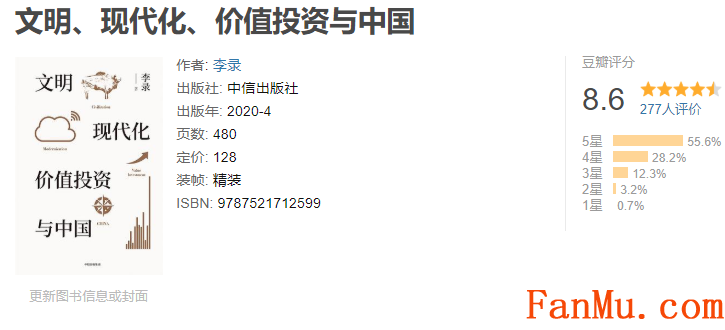
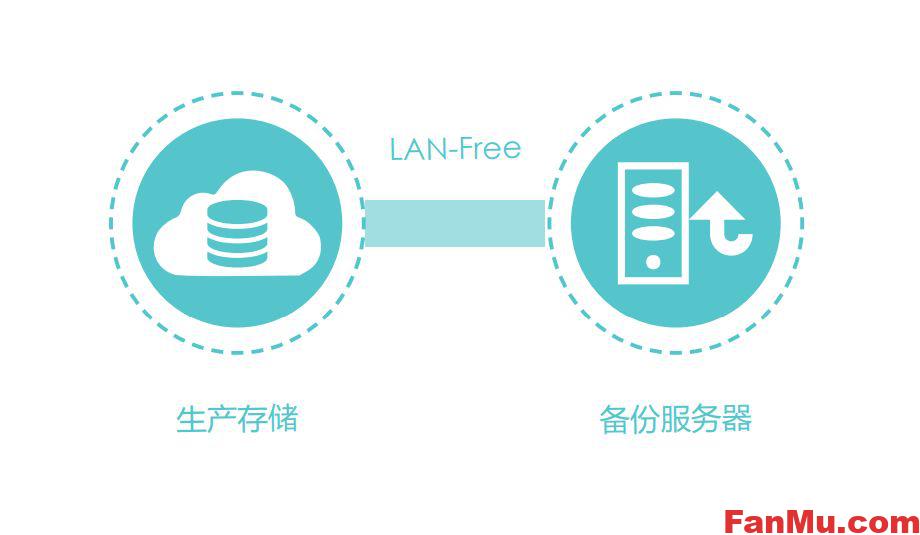


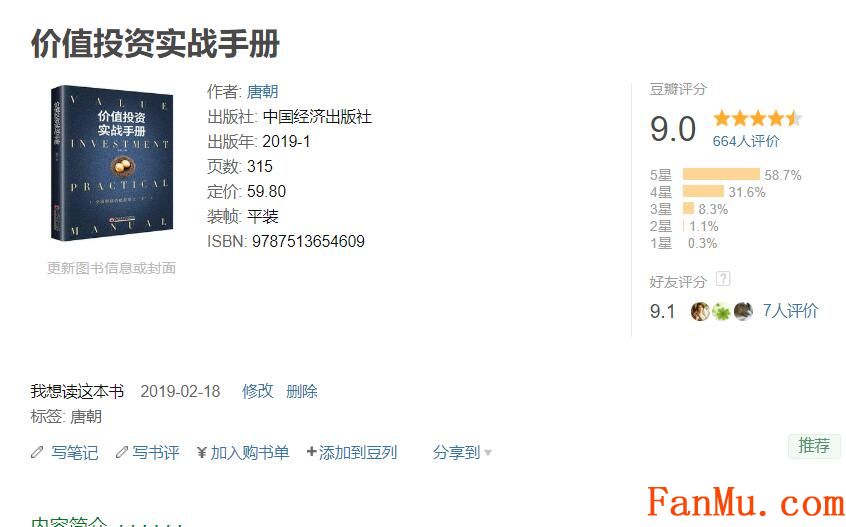

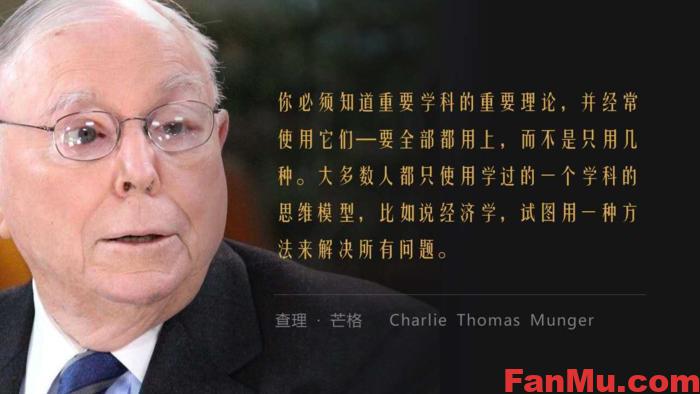

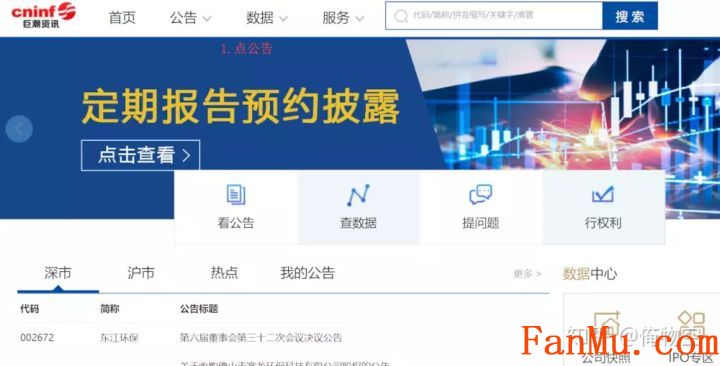

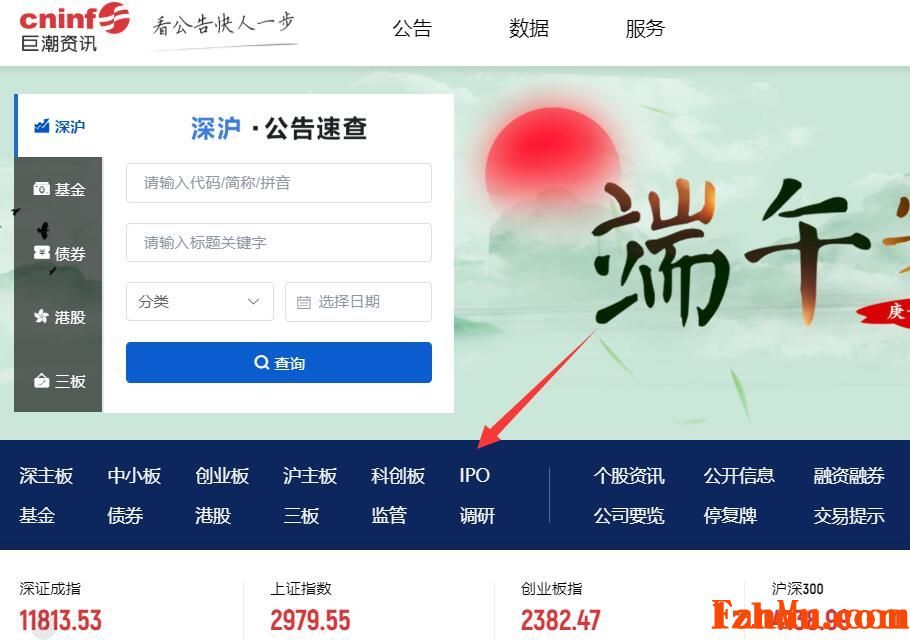

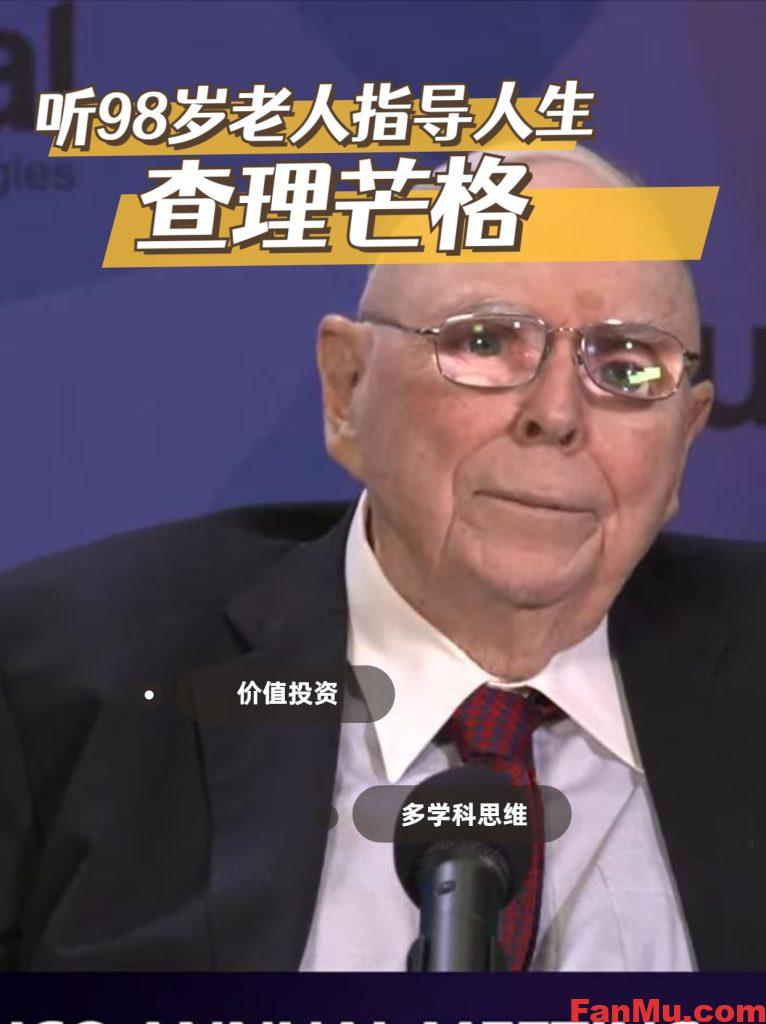
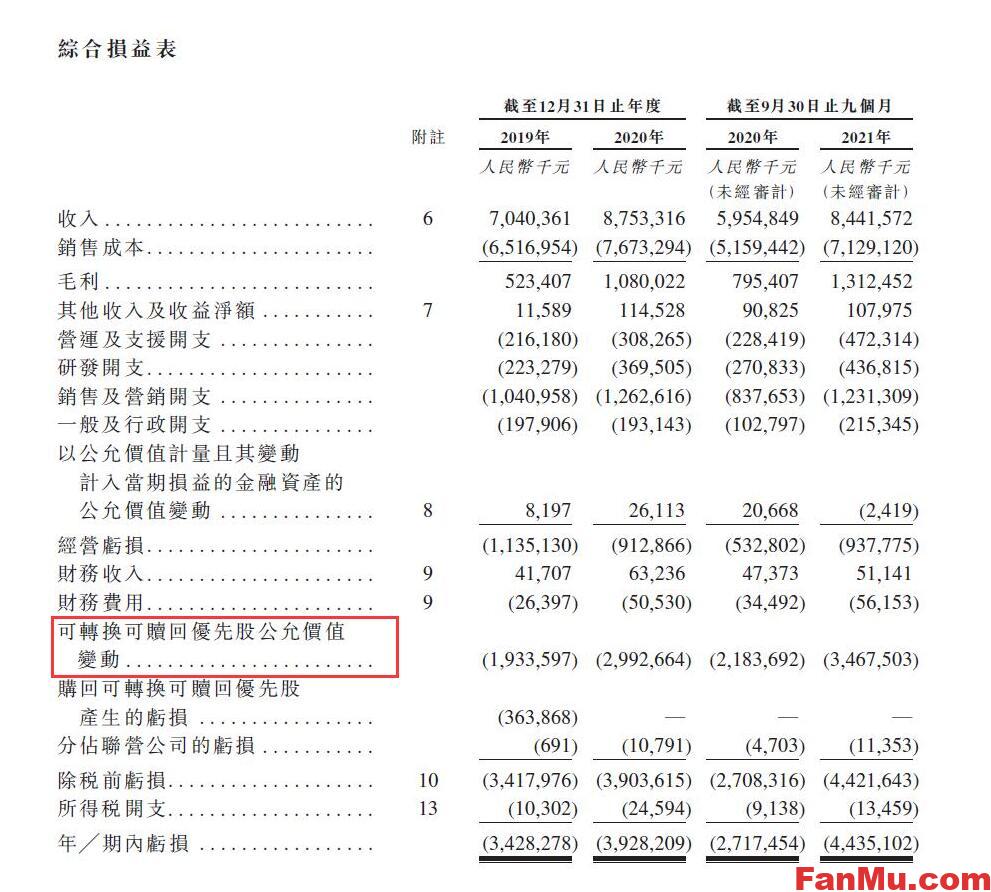


暂无评论内容